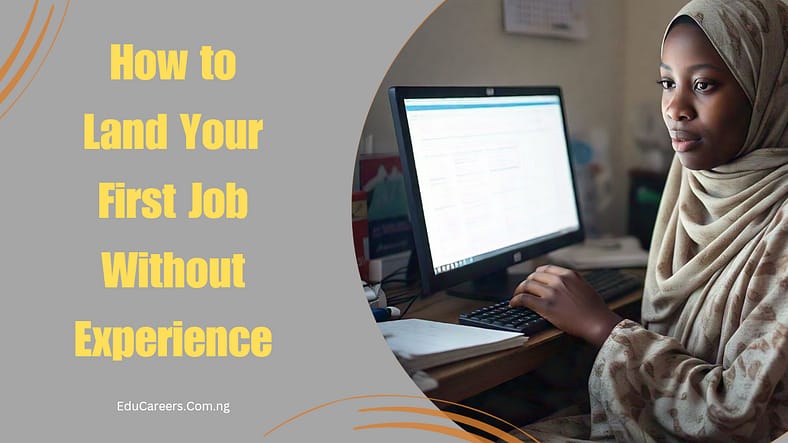Securing your first job without prior experience might feel daunting, especially in a competitive job market like Nigeria’s. However, with the right strategies, mindset, and tools, you can transition from a job seeker to a working professional. This comprehensive guide breaks down actionable steps tailored to the Nigerian context, ensuring you’re fully prepared to land your first role.
Understanding the Job Market
Before diving into job applications, it’s essential to understand the realities of Nigeria’s job market:
- Top Sectors: Emerging fields like technology, renewable energy, and creative industries offer opportunities alongside traditional sectors like banking, teaching, medicine and oil & gas.
- Skills in Demand: Employers increasingly seek a mix of technical and soft skills. Adaptability and problem-solving are highly valued.
Preparation Begins Early
1. Build Experience During School
- Internships and Volunteer Work: Gain hands-on experience through internships and community projects, even if unpaid. Employers value these experiences for skill development.
- Extracurricular Activities: Participate in leadership roles or skills-based clubs to build soft skills like teamwork and communication.
2. Self-Reflection and Research
- Assess your strengths, interests, and career goals.
- Research industries and roles that align with your aspirations, focusing on companies hiring fresh graduates.
Crafting Your Application
3. Tailor Your CV and Cover Letter
- Highlight relevant coursework, projects, and internships.
- Use action verbs to demonstrate impact (e.g., “led,” “organized,” “improved”).
- Customize your CV for each application, focusing on the job’s requirements.
4. Build an Impressive LinkedIn Profile
- Use a professional photo and concise headline summarizing your expertise.
- Highlight skills and ask for endorsements from mentors or peers.
- Share insights or articles to showcase your industry knowledge.
Expand Your Network
5. Attend Career Events
- Leverage job fairs, industry meetups, and alumni networks to meet professionals.
- Always follow up with contacts you meet, expressing gratitude and interest in learning more.
6. Use Social Media Strategically
- LinkedIn is invaluable for connecting with recruiters and industry professionals.
- Join professional groups and actively participate in discussions.
Skill Development
7. Invest in Continuous Learning
- Take free or affordable online courses to enhance your technical and soft skills (e.g., on Coursera or Jobberman).
- Obtain certifications relevant to your chosen field.
8. Learn While Gaining Experience
- Be open to internships or entry-level roles, even if they’re not your ideal job. These provide a platform for growth.
Ace the Interview Process
9. Research and Practice
- Learn about the company, its values, and its industry standing.
- Prepare for common interview questions and rehearse answers that highlight your unique contributions.
10. Follow Up After Interviews
- Send a thank-you email reiterating your interest in the role and summarizing key discussion points.
Embrace Resilience and Persistence
The journey to landing your first job may involve rejections, but every experience teaches valuable lessons. Stay persistent, refine your approach, and maintain confidence in your abilities.
Key Takeaways
- Build experience through internships and volunteering.
- Create tailored applications and network strategically.
- Continuously upgrade your skills and leverage online platforms like LinkedIn.
Your first job is not the ultimate goal but a stepping stone toward a fulfilling career. Approach the process with curiosity, preparation, and determination, and you’ll be on the path to success.
To Receive Latest Updates on: Scholarships, Internships, Recruitments and Job Opportunities Join our Telegram and WhatsApp Group Now!!







1 Comment
Thanks for sharing. I read many of your blog posts, cool, your blog is very good.